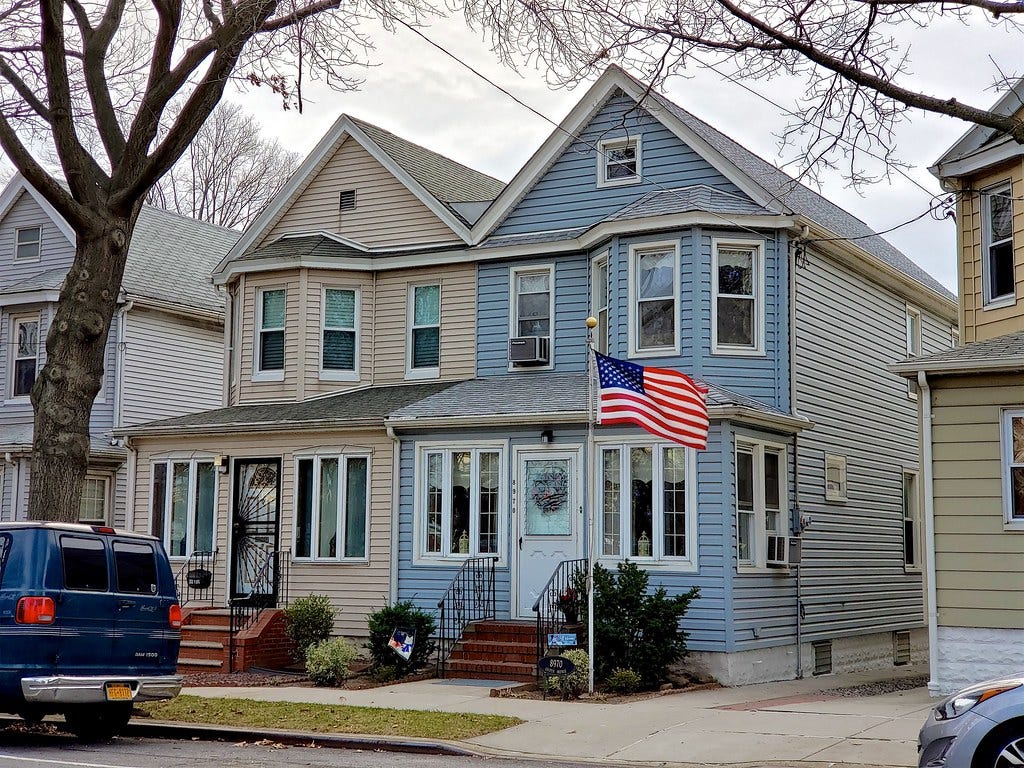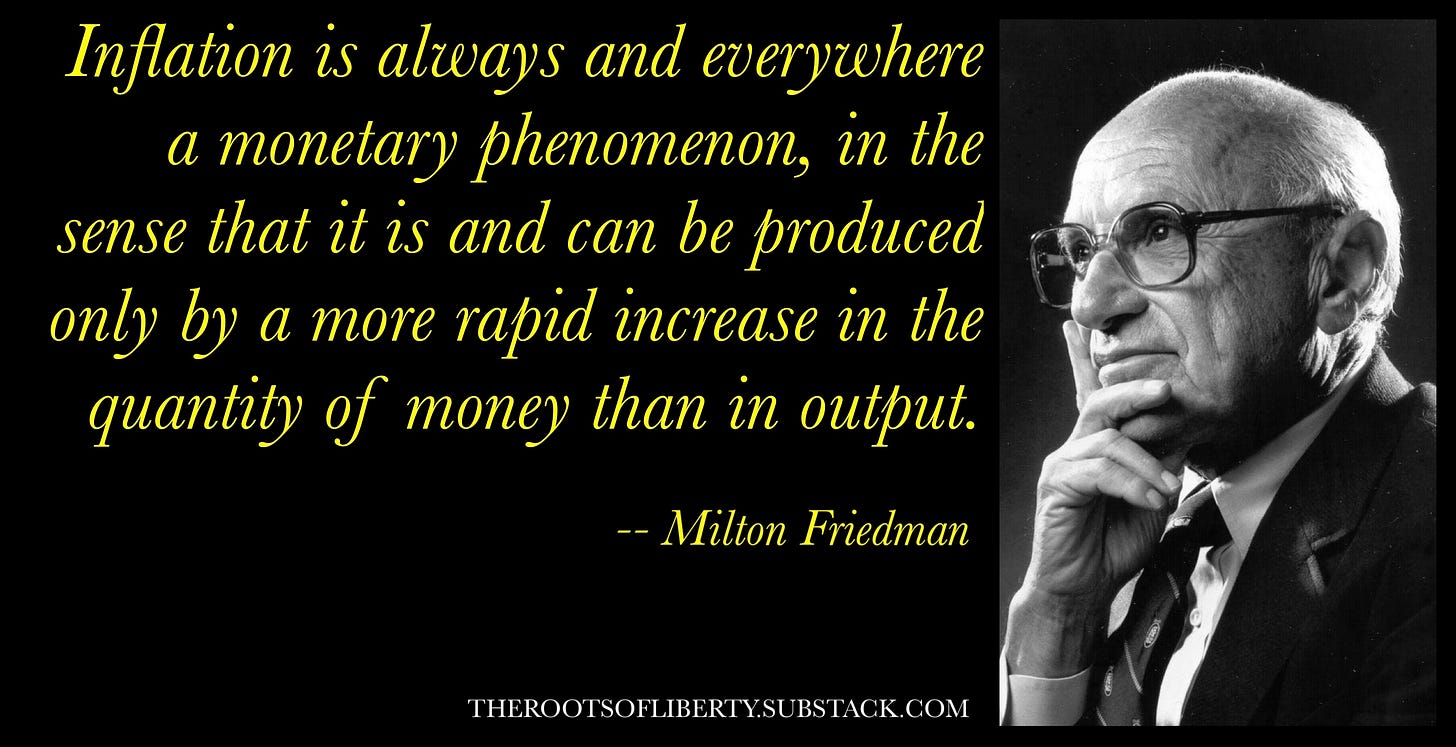I saw a report the other day that noted the mean net worth of the average American household was $1.06 million last year. While the report spun it as a positive, including language "even adjusting for inflation" and attributing what it noted was a 23% increase from 2009 to a strong stock market and rising house prices, I cocked an eyebrow.
As a kid, when I'd hear someone was a millionaire, I considered him to have essentially infinite money, to be able to live any lifestyle he desired. As I grew older, I came to understand that it wasn't quite so binary, but the old saying about "making your first million" still packed a punch. Making that first million meant you had succeeded, that yours was an easy-street path.
Today, achieving a net worth of a million bucks puts you somewhere in the middle class.
Class warriors and other agitators will argue that the million dollar mark is a sign of increased wealth disparity, and do their usual caterwauling for the seizure of some people's income (or assets) in order to "balance" that out (without ever proving that the disparity is a Bad Thing), but they, too, ignore the forest for the trees.
Since the inception of the Federal Reserve just over 100 years ago, the dollar has lost over 97% of its value. Today, you need $31.09 (and counting) to buy what a buck cost you when Woodrow Wilson became President.
A couple years ago, I took notice of the big spike in government spending, both Trumpian (see: the "firehose" response to the pandemic) and Bidenish (see: JoeB never met a spending bill he didn't adore), and moved to refinance some commercial loans that were a year or two from maturing. I also refinanced my mortgage. While the usual "everything takes longer" (Peter's Rule of Life #3) hurt my timing a bit (I missed the bottom by a couple months), I nevertheless secured new loans at good rate.
A year later, my banker called me a genius.
He's a good guy and a smart guy, but I cannot fathom how he and so many others didn't see today's high rates coming. Given all the profligate spending (and commensurate borrowing) by the government, it was inevitable that inflation would rear its ugly head, and that the Federal Reserve's pack of Best-and-Brightest would have to start raising interest rates, i.e. contracting the money supply, in order to try and tame that beast.
Since JoeB wasn't about to admit that his spendthrift ways were at the root of inflation, it was inevitable that the beast would be difficult to tame. In typical government fashion, our geniuses never even contemplated addressing the cause. When you have a gushing wound, applying pressure only gets you so far - you need to stitch up the artery at some point.
So, we sit here today in late October 2023, with dollars that are worth 19% less than the day Biden took the oath of office. Yet it's not only about Joe.
Inflation is one of the great evils that government perpetrates on its citizens. It saps wealth, permanently. The "safe" investments available to the average American rarely match the inflation rate, which discourages savings, which in turn leaves people less likely to be prepared for retirement. Which, in turn in turn, prompts government to try all sorts of things to counteract that lack of preparedness, usually creating even more problems.
Despite inflation's villainy, the Federal Reserve speaks about inflation levels in "acceptable" and "desired" terms, setting 2% rather than zero as a goal. From what I gather, they set that goal because they fear deflation far more than inflation, and the cynical reason for that, I've concluded, is that they "lose control" under deflation, since they can only reduce the interest rate to zero. Never mind that deflation has occurred only two times since the Great Depression, and in both cases it was minor and brief. Meanwhile, that 2% goal means that someone entering the workforce at 18 would see cumulative inflation of a minimum 254% by the time he retires. That's assuming the Feds could hold that 2% across those decades, which we know they cannot because they don't control government spending.
Average folks have been taught to pooh-pooh the gold standard, which served to stabilize the value of the dollar, and which handcuffed government's ability to exercise "monetary policy," i.e. manipulate that value. Wars, in particular, are problematic if the dollar is stable and out of government's control, because the money borrowed to prosecute those wars cannot be repaid with devalued dollars. So, we went off the gold standard in 1933, and did away with gold as an anchor for dollars in 1971, in what is now referred to as the Nixon Shock.
Everyone cheered Nixon at the time, but he unleashed a mess. A big spurt of inflation in the next couple years, and then the stagflation of the late 1970s. In just 11 years, the dollar lost 60% of its value.
I was a kid when Nixon made his moves. That's when "millionaire" meant "rich."
Today, "millionaire" means you have some modest degree of financial success. A mortgaged house, a 401K you've fed for a couple decades, some stuff that's got value.
Your first million 50 years ago meant you had achieved a level of wealth that assured a life of relative ease and luxury. You had "made it," you were well on the path to self-perpetuating wealth.
Your first million today may sound like a nice milestone, but it's nothing more than a sign that you've exercised some responsibility. But, whatever portion of that you haven't attached to an appreciating asset class has been sapped to the tune of 20% in just the past three years. If your stock market investment mirrored the S&P 500, your 19% gain since January 2021 has been offset by the 19% inflation we've had since then. Your house equity is more likely to have made net gains, but even there, inflation is taking a big bite, and mortgage rates are scaring away buyers.
Inflation is evil. It's also Big Government's secret answer to our endless deficit spending and our runaway debt. They figure that, since our debt is in our own currency, inflation will solve part of that problem. No matter the harm it does to you and me.
Why else would the inflation target be 2%, rather than 1% or zero?






I struggle with that mean number. If the average home value is 410,000 (and is heavily mortgaged) and average retirement savings is 65,000, I don't see how one gets to a million for the mean. The median is a much better indicator - being that it's not skewed by the uber wealthy. That number is a small fraction of the mean - about 250,000. And that number is mostly home equity - which is NOT a liquid asset, being that if one sells that asset, they STILL need to find a place to live.
I read that there were a great many millionaires in the Weimar Republic as well.